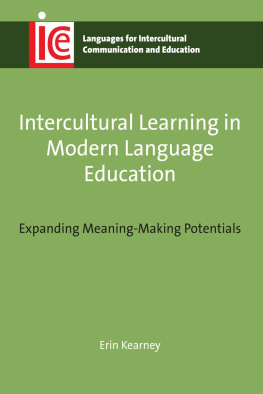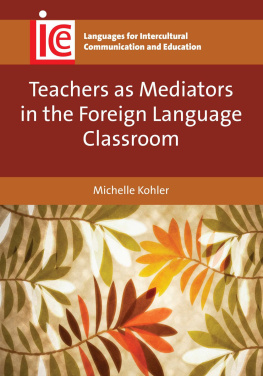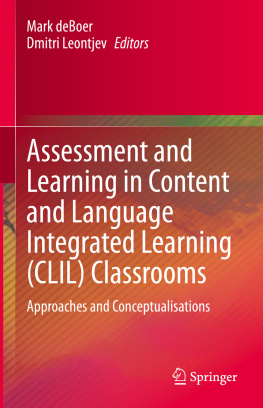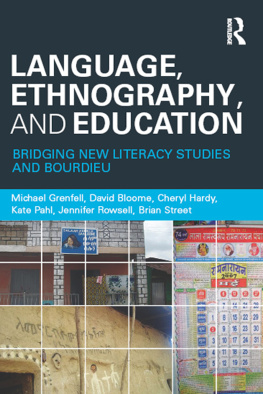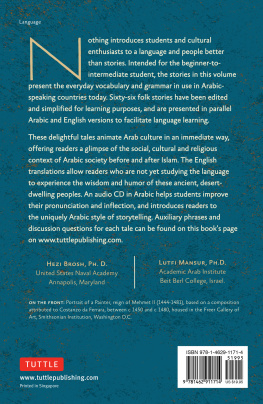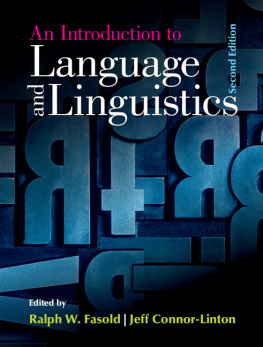Intercultural Learning in Modern Language Education
LANGUAGES FOR INTERCULTURAL COMMUNICATION AND EDUCATION
Series Editors : Michael Byram, University of Durham, UK and Alison Phipps, University of Glasgow, UK
The overall aim of this series is to publish books which will ultimately inform learning and teaching, but whose primary focus is on the analysis of intercultural relationships, whether in textual form or in peoples experience. There will also be books which deal directly with pedagogy, with the relationships between language learning and cultural learning, between processes inside the classroom and beyond. They will all have in common a concern with the relationship between language and culture, and the development of intercultural communicative competence.
Full details of all the books in this series and of all our other publications can be found on http://www.multilingual-matters.com, or by writing to Multilingual Matters, St Nicholas House, 31-34 High Street, Bristol BS1 2AW, UK.
Library of Congress Cataloging in Publication Data
A catalog record for this book is available from the Library of Congress.
Kearney, Erin.
Intercultural Learning in Modern Language Education: Expanding Meaning-Making Potentials/Erin Kearney.
Languages for Intercultural Communication and Education: 28
Includes bibliographical references and index.
1. Language and languagesStudy and teaching. 2. Intercultural communicationStudy and teaching. 3. Language and cultureStudy and teaching. 4. Multicultural education. I. Title.
P53.45.K43 2015
418.0071dc23 2015023401
British Library Cataloguing in Publication Data
A catalogue entry for this book is available from the British Library.
ISBN-13: 978-1-78309-467-7 (hbk)
ISBN-13: 978-1-78309-466-0 (pbk)
Multilingual Matters
UK: St Nicholas House, 31-34 High Street, Bristol BS1 2AW, UK.
USA: UTP, 2250 Military Road, Tonawanda, NY 14150, USA.
Canada: UTP, 5201 Dufferin Street, North York, Ontario M3H 5T8, Canada.
Website: www.multilingual-matters.com
Twitter: Multi_Ling_Mat
Facebook: https://www.facebook.com/multilingualmatters
Blog: www.channelviewpublications.wordpress.com
Copyright 2016 Erin Kearney.
All rights reserved. No part of this work may be reproduced in any form or by any means without permission in writing from the publisher.
The policy of Multilingual Matters/Channel View Publications is to use papers that are natural, renewable and recyclable products, made from wood grown in sustainable forests. In the manufacturing process of our books, and to further support our policy, preference is given to printers that have FSC and PEFC Chain of Custody certification. The FSC and/or PEFC logos will appear on those books where full certification has been granted to the printer concerned.
Typeset by Deanta Global Publishing Services Limited.
Printed and bound in Great Britain by Short Run Press Ltd.
For Eric, Scarlett and Ray
Contents
In the early weeks of a first semester French class I was teaching, I asked students about where they lived, following a short lesson on the question form Do viens-tu ? (Where are you from ? ) and the basic vocabulary necessary for responding. The problem arose that a student wanted to say that she was from a town in the suburbs of Austin, Texas. I hesitated, yet went to the chalkboard, wrote the word banlieue (suburb), then modeled how the student could make a full sentence using the term, and waited for her to repeat. I then took care to note to the class, in English, that the word carried different connotations in French, that the banlieue was not as coveted a place to live as in the US (as some people sometimes refer to suburban bliss for example). In France, I explained, moderate-income housing in the form of tall apartment buildings was located on the outskirts of the main cities and for decades has been a place where immigrant families and families in financial difficulty have lived in higher concentrations than in other places, like inside cities (although ethnic neighborhoods obviously exist in Paris and elsewhere in France). But as I spoke I realized the essentialization of culture that was occurring as I tried to succinctly deal with a very complex word and meaning. I knew, first of all, that discussions of social housing in French society differ from those in the US, with important conceptions of assimilation and integration being talked about in very different ways in the two societies. I also knew that living in a cit (a grouping of tenement buildings in the French suburbs and another lexical item that is enormously complex) and being from the banlieue evoke images of a very particular nature for speakers of French and that even within the category of French speakers, understandings of this word are rooted in various social realities; yet, relating the complexity of the interrelated linguistic and social situation in this introductory-level course seemed at odds with the purpose of the class to get the basics of the French language.
My students question made me think of the gross generalities that are sometimes made in presenting the vocabulary for talking about where one lives, ostensibly for the sake of getting students to master linguistic elements themselves, outside of their social and cultural context, before delving into the complex meanings around such words as banlieue. This moment signaled to me more generally as well the complicated task of communicating meaning to my students. It led me to consider what other instructors might have done in the same situation, and it seems that in at least some cases, this discussion would have been completely glossed over or the complexity of the term entirely ignored, with a translation being supplied and no further discussion ensuing. On the other hand, perhaps instructors had effective strategies for addressing the social and cultural weight of language even in the introductory-level classroom. What was also striking to me shortly after this classroom experience was that in another class that I was teaching, a fifth semester, intermediate French level, life in the banlieue was taken up in much more detail, with three and a half hours of class time over several days devoted to examining the historical, artistic, social and linguistic aspects of life for banlieusards (people who live in the banlieue). In this content-based course, the learners language skills were assumed to be stable enough to allow for much more substantive discussion of social and cultural reality and were conducted entirely in French. Ultimately, this classroom moment and many others that occurred in the course of my own teaching practice, led me to wonder about the place of culture in language learning and how, in a modern language (ML) classroom especially, culture is taught and learned. (Kearney, 2008: 13).
These episodes from my own teaching inspired the classroom ethnography reported in this book. Upon learning of another university-level French classroom, from which students apparently emerged not only with improved linguistic abilities but also deep cultural knowledge and competence, I became interested in studying Emilie a reportedly outstanding ML teacher her students, and the impact her pedagogical approach had on their learning. The challenge I faced in the classroom and the one Emilie faced in teaching culture is indeed the challenge faced by many ML educators these days how to engage students in more deeply meaningful learning in the language classroom, how to connect them with culture and hopefully, in the process, how to spur change in their worldviews.
The ML classroom, for me, for Emilie and for many others increasingly, is a site where students not only learn to speak, read, listen or write a new language but where they also can learn to understand, to feel and to be in new ways and to potentially transform themselves and the world around them through language study. Transformative ML education is, I will argue, intimately tied to a view of language learning as an engagement in meaning-making activity or what we might refer to as semiotic practice. Reconceptualization along these lines is already occurring in some ML classrooms but also in theorizing of what language education is as an individual and group activity. Research, too, increasingly attempts to document and analyze classroom interactions, learners subjective and personal experiences with language learning, and the broader policy and political environment in which language education occurs, all in an effort to foreground the meaning and meaningfulness of language learning as an activity. All of this work underscores the argument that rethinking the meaning of ML education and meaning-making in ML education is the major issue language teachers, theorists and researchers grapple with today.

